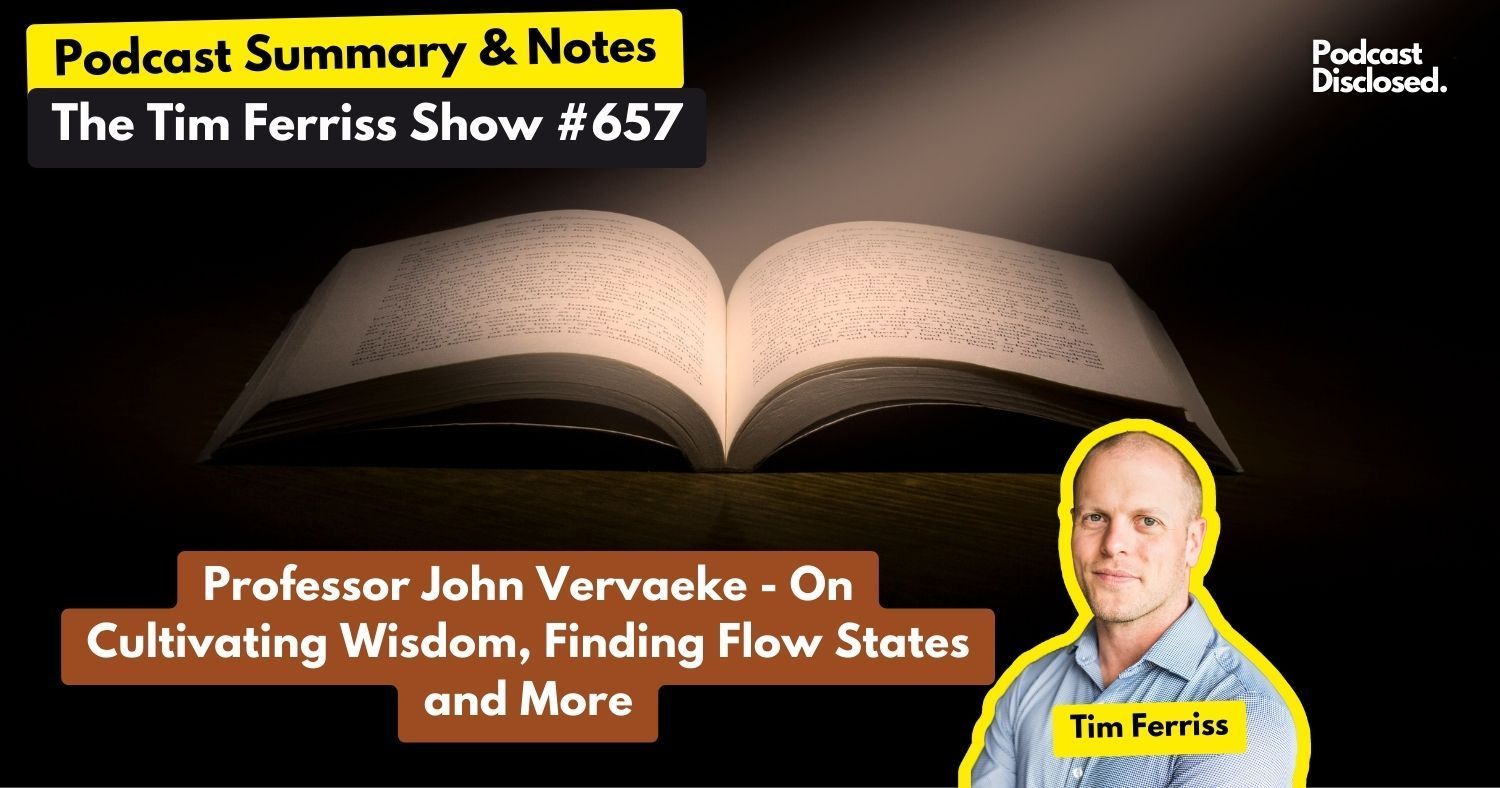The Tim Ferriss Show: Professor John Vervaeke – On Cultivating Wisdom

Humans interact with the environment in multiple ways and create an understanding of the world, which is known as participatory knowing. This involves discovering and utilizing affordances and flow states.
The macro in the micro
Humans interact with the environment in multiple ways and create an understanding of the world, which is known as “participatory knowing.” This involves discovering and utilizing affordances and flow states.
Practicing the macro in the micro, focusing on transferable skills, and having an overarching framework or philosophy can help transform shyness into strength.
Loosening lecture structure and reinforcing positive insight and intuition are keys to achieving a flow state in teaching.
Diversity and different perspectives
- Appreciate diversity and explore common ground to learn from each other, understanding our perspectives and those of others.
- Respect each other, engage in genuine dialogue, and strive to strengthen each other’s arguments to enhance learning and cognition.
- By engaging in meaningful practices together, we can cultivate shared ecologies of practices to form a collective understanding of the truth and support each other’s self-correction and growth.
Utilizing intuition and logic for problem solving
- Intuition is a powerful tool for problem solving that provides an alternative to logic and rationality.
- It is based on the notion that certain properties of a situation can be relevant and important without the use of logical relations and implications.
- Intuition can be used to draw connections between seemingly unrelated subjects and provide insight into problems that are otherwise intractable.
- Although intuition can be a great help in problem solving, it can also be impulsive or inaccurate.
To become wise and virtuous, one needs to practice an “ecology of practices”, which are practices that have complimentary strengths and weaknesses.
Cognitive abilities and emotions
- Our cognitive abilities extend beyond our knowledge and understanding, and are greatly impacted by the people, tools, and resources around us, as well as our bodies.
- Emotions are key motivators and play a crucial role in learning and understanding. Exaptation is when something is repurposed for a different purpose, such as the tongue for speaking.
Wisdom and intuition
- Wisdom is needed to recognize when our intelligence may lead us astray and to break out of our own thinking in order to find the right solution.
- Intuition can provide insight into complex problems, but it should be balanced with logic to avoid impulsive and inaccurate decisions.
- Intuitively learn from your environment to distinguish cause from correlation and use it for positive outcomes.
Understanding the universe
Consciousness is associated with relevance realization, the ability to recognize what is important and relevant. Long-term meditative practice can induce a “pure consciousness event” where one is conscious of nothing, yet still remains conscious.
We can understand the universe by exploring the fundamental building blocks of reality, which include consciousness, cognition, life, and self-organization. This knowledge helps us to appreciate the interconnectedness of the world.
Understanding the Four Types of Knowing
- Propositional knowing is the most familiar form and requires truth as a standard of realness.
- It results in beliefs and is associated with semantic memory.
- Procedural knowing is the ability to do something and results in skills, but it is not true or false.
- It relies on the standard of power, and is associated with procedural memory.
- Perspectival knowing is about understanding what it’s like to be in a certain situation, results in perspectives, and is judged on presence.
- Finally, participatory knowing is about knowing by being, and is associated with episodic memory.
- Understanding all four types of knowing and their associated memories provides deeper insight into how we learn.
Mental framing
- Practice an ecology of complementary practices to spot wrong patterns and track real causal relationships to make better decisions.
- Become aware of mental framing and biases by practicing meditation, contemplation, circling, paraphrasing, and philosophical fellowship to lead a meaningful life.
- Centering is a practice of learning to stay present and observe your thoughts and feelings, while metta is a practice of cultivating deeper connection and understanding with yourself and others.
What to do for deeper connections
- Developing listening and communication skills can help to create deeper connections with others through circling, paraphrasing and philosophical fellowship.
- To gain an understanding of the divine, we must be open to perspectives and internalize teachings.
- Expand cognitive flexibility and have an ecology of practices to fall in love with the mystery and depths of reality.

